Engineered Hardwood Flooring Options in Kansas City, MO: Top Choices from Kansas City Flooring Company
At Kansas City Flooring Company, we offer a wide range of engineered hardwood flooring options for homeowners in Kansas City, MO. Our engineered hardwood floors combine the beauty of real wood with enhanced durability and stability, making them a great choice for any room in your home. We stock popular wood species like oak, maple, and hickory in various colors and finishes to match your style.
We pride ourselves on offering high-quality products at competitive prices. Our engineered hardwood floors are built to last, with warranties ranging from 25 to 50 years depending on the product line. If you're looking to upgrade your floors, give us a call to learn more about our engineered hardwood options.
Our Engineered Hardwood Selection
At Kansas City Flooring Company, we offer a wide range of engineered hardwood options. Our selection includes various species, finishes, sizes, and core construction types to suit different preferences and needs.
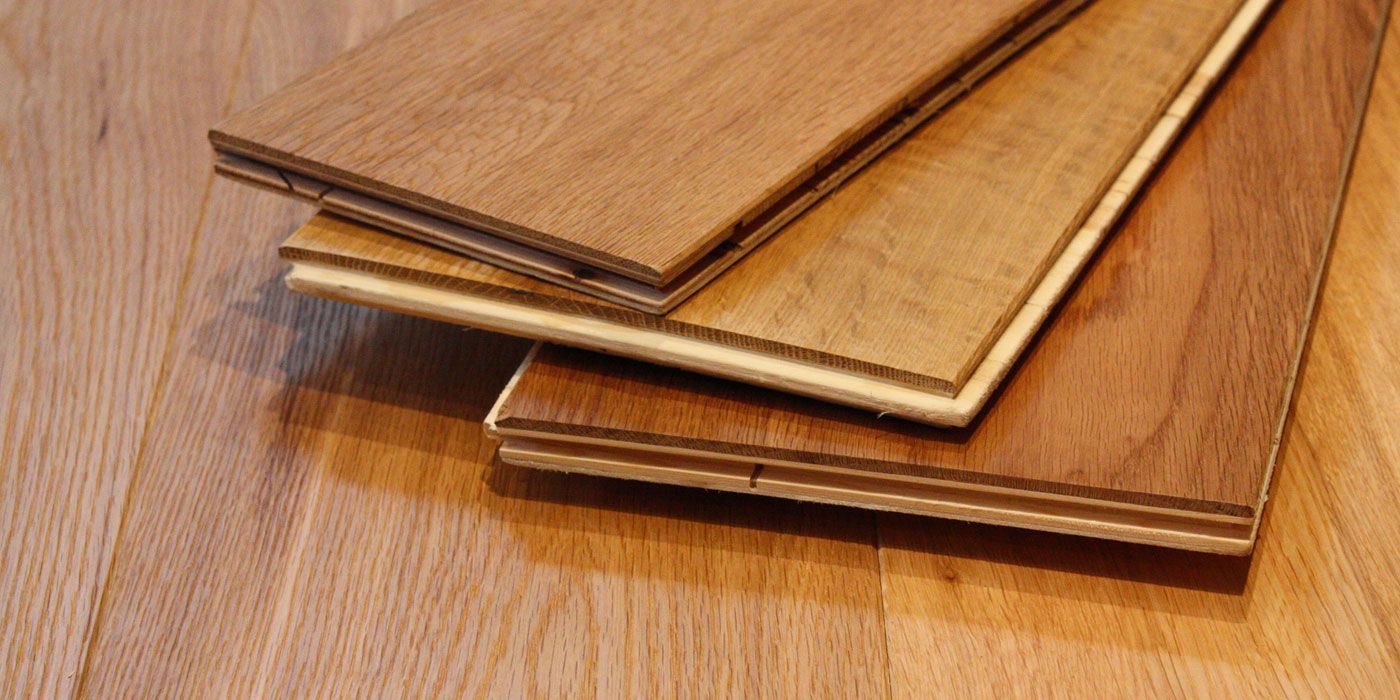
Species and Finishes
We stock engineered hardwood in popular species like oak, maple, and hickory. Oak is our most versatile option, available in red and white varieties. Maple offers a smooth, uniform look, while hickory provides unique grain patterns.
Our finishes range from natural to dark stains. We offer matte, satin, and glossy options to match any decor style. Some of our engineered planks come with hand-scraped or wire-brushed textures for added character.
We also carry prefinished and unfinished engineered hardwood. Prefinished saves time during installation, while unfinished allows for custom staining on-site.
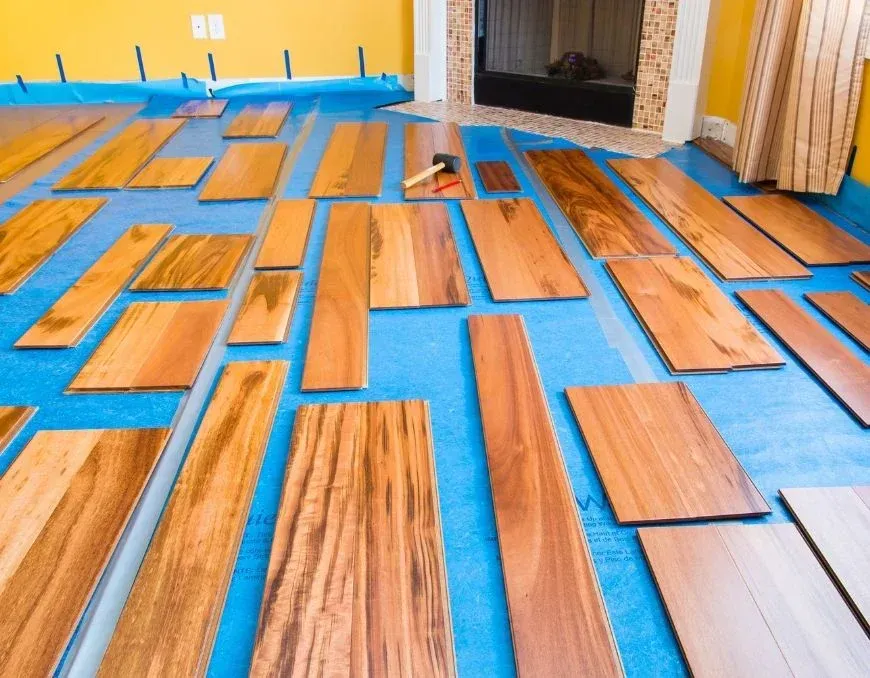
Plank Widths and Lengths
Our engineered hardwood comes in various widths and lengths. Narrow planks (2¼" to 4") give a classic look, while wider planks (5" to 7"+) create a more modern feel.
We offer standard lengths of 12" to 48". Some premium lines feature longer planks up to 84" for a luxurious appearance. Varying lengths can be mixed for a natural, staggered look.
Our experts can help you choose the right size for your space. Wider planks work well in larger rooms, while narrower planks suit smaller areas.
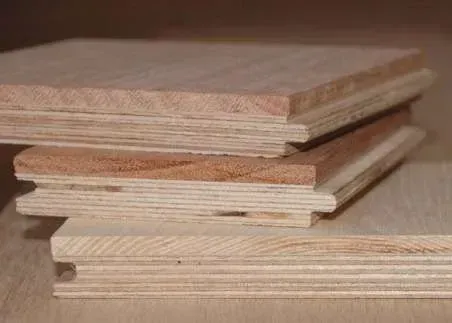
Core Construction Types
We offer three main types of engineered hardwood core construction:
- Plywood core: Multiple thin layers of wood, very stable
- HDF core: High-density fiberboard, resists dents well
- Multi-ply core: Combination of softwood and hardwood layers
Plywood cores are our most popular option due to their stability and moisture resistance. HDF cores work well in high-traffic areas. Multi-ply cores offer a good balance of stability and affordability.
The core type affects the floor's performance and lifespan. We can help you select the best option based on your specific needs and installation location.
Customization Options
At Kansas City Flooring Company, we offer many ways to personalize your engineered hardwood floors. Our custom options let you create a unique look that fits your style and home.
Staining and Textures
We provide a wide range of stain colors for your engineered hardwood. Light, medium, and dark tones are available to match any decor. Our team can also create custom stain blends for a one-of-a-kind look.
Texturing adds depth and character to floors. We offer hand-scraped, wire-brushed, and distressed finishes. These give wood a worn, rustic feel. Smooth finishes are also an option for a more modern style.
We can combine stains and textures in different ways. This lets you get the exact look you want. Our experts will help you pick the best combo for your space.
Custom Milling Services
Our custom milling lets you design truly unique floors. We can cut wood planks to any size or shape you need. Wide planks, herringbone patterns, and mixed-width layouts are popular choices.
We also mill custom inlays and borders. These add flair to your floors. Wood species can be mixed for interesting patterns. Curved cuts and intricate designs are possible too.
Our team works with you to bring your ideas to life. We use top equipment to ensure precise cuts. This gives you high-quality, custom engineered hardwood that fits your space perfectly.
Benefits of Engineered Hardwood Flooring
Engineered hardwood flooring offers several advantages for homeowners in Kansas City. We find it combines beauty, practicality, and value in a single flooring solution.
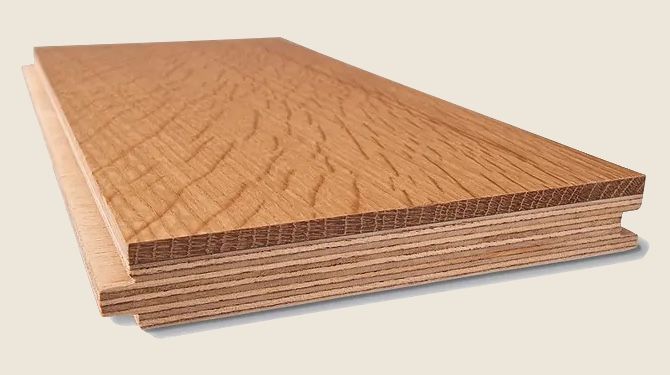
Durability and Longevity
Engineered hardwood stands up well to daily wear and tear. Its layered construction makes it more resistant to changes in temperature and humidity than solid hardwood. This means less warping or buckling over time.
The top layer of real wood can be sanded and refinished multiple times. This extends the life of your floor. Many engineered hardwood options come with 15- to 25-year warranties, giving you peace of mind.
We've seen these floors hold up well in high-traffic areas of homes. They resist scratches and dents better than some other flooring types.
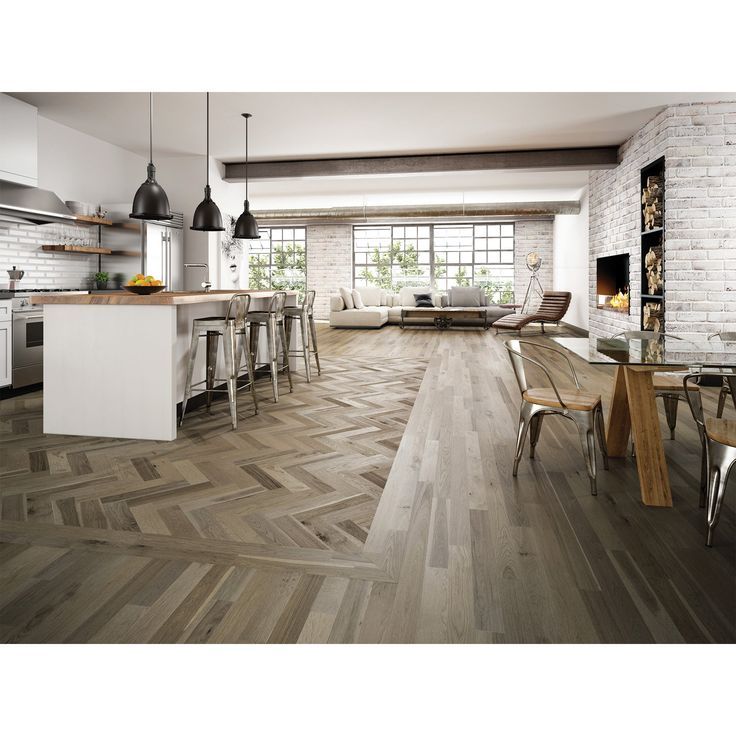
Versatility in Design
Engineered hardwood offers a wide range of design choices. We can help you find options to match any decor style.
You'll find various wood species, from classic oak to exotic woods. Colors range from light blonde to rich dark browns. Finishes include matte, semi-gloss, and high gloss.
Plank widths and patterns add more design flexibility. Wide planks create a modern look, while narrower planks suit traditional spaces.
Some engineered hardwood even mimics hand-scraped or distressed wood for a rustic feel.
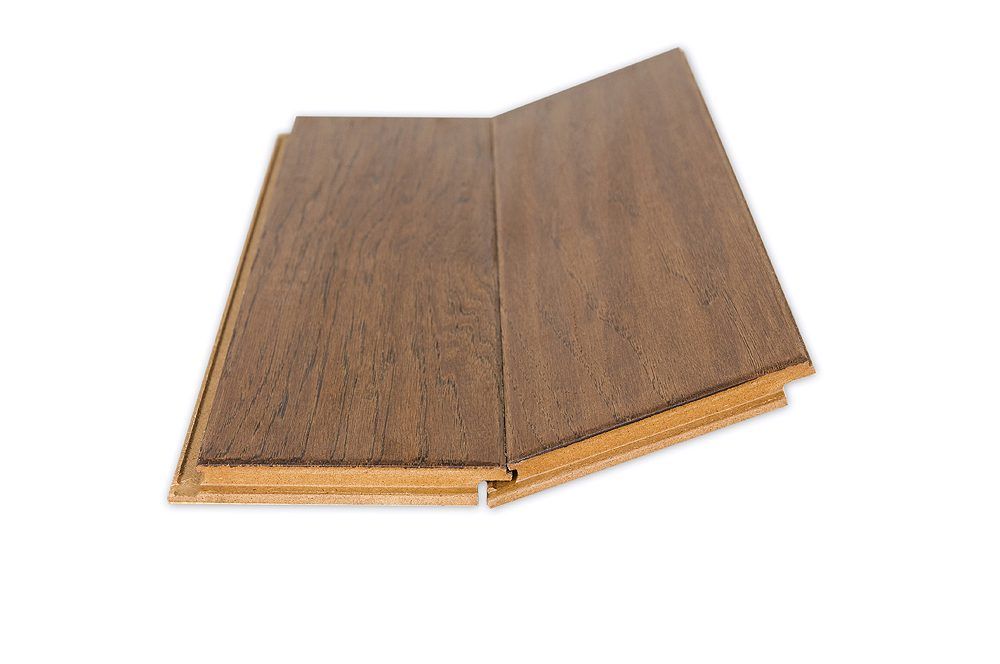
Ease of Installation
Installing engineered hardwood is often simpler than solid hardwood. We find it's a great option for DIY-minded homeowners.
Many engineered planks use a click-lock system. This allows them to float over the subfloor without nails or glue. It's quicker and creates less mess.
These floors can go in basements or over concrete slabs. Solid hardwood often can't due to moisture concerns.
The stability of engineered hardwood means less acclimation time before installation. This gets your new floor in place faster.
FAQs on Engineered Hardwood Flooring
Engineered hardwood flooring offers many benefits, but homeowners often have questions about selection, care, and installation. We've compiled answers to common queries to help you make informed decisions about your flooring project.
What factors should I consider when choosing engineered hardwood flooring?
When picking engineered hardwood, think about your home's style and traffic level. Look at the wood species, color, and finish. Check the thickness of the top wood layer. This affects how long the floor will last.
Also, consider the plank width and length. Wider planks can make rooms feel bigger. The core material matters too. Some are more stable in changing temperatures and humidity.
Are there specific engineered wood products recommended for high-moisture areas?
For areas with more moisture, like basements or kitchens, look for engineered hardwood with a moisture-resistant core. Some products use HDF (High-Density Fiberboard) or plywood cores that resist moisture better.
Certain wood species also handle moisture better. Oak and maple are good choices. Make sure the finish is water-resistant too. A professional can suggest the best options for your space.
What installation methods are available for engineered hardwood flooring in homes?
Engineered hardwood can be installed in several ways. Click-lock or floating installation is popular. The planks lock together and "float" over the subfloor. This method is often faster and easier.
Glue-down installation provides a more solid feel underfoot. Nailing or stapling is another option, especially over wood subfloors. The best method depends on your subfloor type and the specific product you choose.
How does the quality of engineered hardwood compare to solid hardwood flooring?
High-quality engineered hardwood can be just as durable as solid hardwood. It often resists warping and movement better in changing humidity. The top layer is real wood, giving the same look as solid hardwood.
Engineered floors can be more stable in wider plank sizes. They're also suitable for installation over concrete, which solid hardwood isn't. The quality varies by brand and product line, so compare options carefully.
